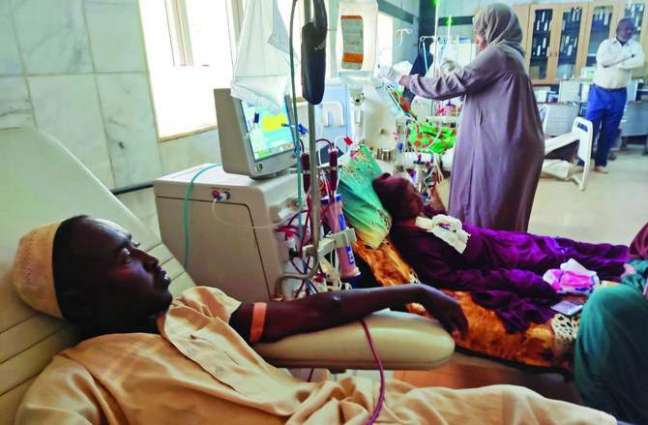An intense fighting in Sudan has entered its fourth month, with the country's population forced to survive with inadequate access to medical care, water, and electricity the fact that may lead to diseases outbreaks and the fatal collapse of the Sudanese healthcare system, the International Committee of the Red Cross (ICRC) told Sputnik
MOSCOW (Pakistan Point News / Sputnik - 04th August, 2023) An intense fighting in Sudan has entered its fourth month, with the country's population forced to survive with inadequate access to medical care, water, and electricity the fact that may lead to diseases outbreaks and the fatal collapse of the Sudanese healthcare system, the International Committee of the Red Cross (ICRC) told Sputnik.
"Lack of safe drinking water is a serious concern. We fear outbreaks of diseases because many residents have had no choice but to use unsafe drinking water from the Nile or other sources. At the same time, food and fuel prices have skyrocketed, and the situation is made worse for many people by the fact that they can't access their money in the banks," Mutsa Mugangavari, the deputy head of the ICRC regional delegation in Southern Africa, said.
The ICRC estimates that in Khartoum, only 20% of healthcare facilities are still functioning, she added, noting that all of them were facing shortages of water, power and food, and running critically low on essential medical supplies. A similar situation is being observed in many areas of the western Darfur Region, Mugangavari said.
"Healthcare may collapse at any moment despite the best efforts of Sudanese doctors and nurses, who have continued working in extremely difficult conditions, caring for the wounded, and providing other essential healthcare services to the population," she told Sputnik.
Mugangavari called the lack of security one of the major challenges being faced by the healthcare personnel in Sudan, as reports of armed attacks against clinics and hospitals in the country continue to emerge. In this regard, she called for medical facilities to be protected and for their personnel and transport to be given safe passage.
A tough healthcare situation is also being observed in neighboring Chad that have accepted a large number of Sudanese refugees since the beginning of the conflict, with many of them arriving in the country with gunshot wounds. The ICRC has deployed a surgical team in the city of Abeche in a bordering region and operated there 23 persons in challenging conditions, Mugangavari said, adding that each patient had required, on average, seven to eight procedures.
"The needs are huge, but the hospital is short of everything: water, electricity, medicines and beds. The medical team and volunteers from the Chad Red Cross set up makeshift beds in the corridors of the hospital, which was built to accommodate 150 patients. The number of patients is now five times that figure," she said.
The upcoming rainy season and flooding are set to make the humanitarian situation in eastern Chad even more complex in the weeks ahead and hinder the delivery of humanitarian aid to the region "at a time when people's needs are increasing with each day that passes," Mugangavari concluded.
In mid-April, violent clashes broke out between the regular Sudanese military and the Rapid Support Forces paramilitary group, with the epicenter located in the capital, Khartoum. The parties have since introduced a number of temporary nationwide ceasefires, but the conflict has not been settled yet.
Hundreds of people have been killed and nearly 3 million have been displaced by the ongoing conflict, including around 700,000 who have left the country, the UN estimates. The Doctors Without Borders aid group said on Wednesday that hundreds of wounded Sudanese had fled Sudan's western region of Darfur to neighboring Chad to escape fighting and ethnic violence.




